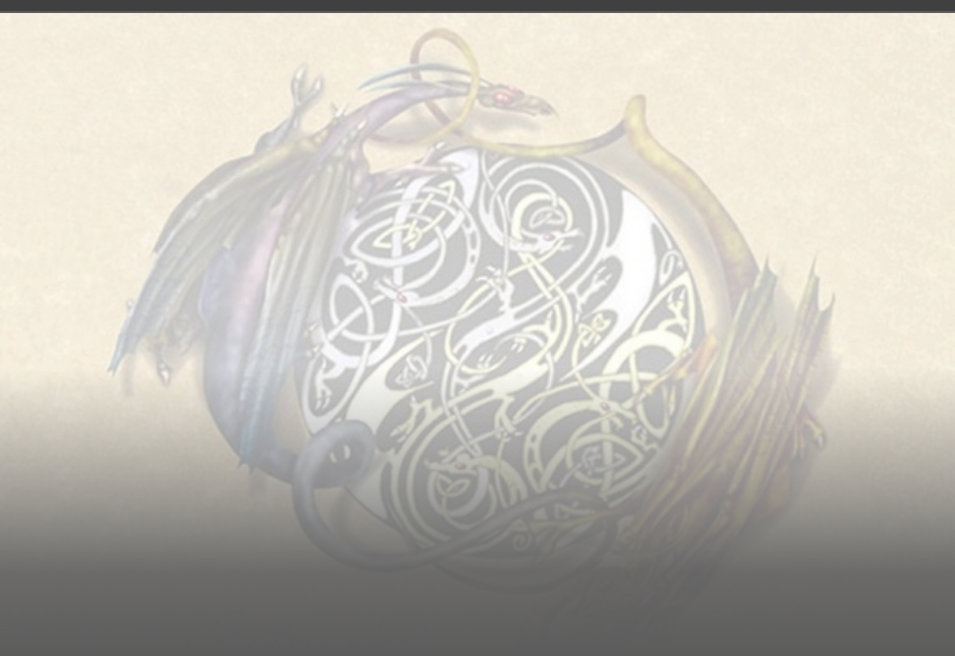

Crystal’s Place
my little piece of the web


© Crystal (aka Dragonfae) 2010-2026
Self-Defense and Paganism
Aren’t we Pagans supposed to be passive?
Let me start here by saying that I’m not Wiccan, but I understand the Rede and similar tenets of other faiths. I wrote this in order to clarify my own thoughts on paganism and pacifism as the subject gets raised periodically on forums I frequent and I’ve seen a lot of people new to a Pagan or Wiccan path espousing a totally passive mentality, insisting that it’s necessary to “heal all ills” no matter what. While this is a nice ideal to try and obtain, it is disturbing to me that so many feel that any action that might harm another is somehow blatantly unethical, immoral, or wrong. It is impossible to live without doing some harm … even if one chooses a vegan lifestyle, plants must be harmed or killed to feed and clothe yourself. Germs must be killed by our immune system to keep us healthy. You get the idea ... to do zero harm means you will die. We’ve had a number of discussions about this subject on several forums I frequent, and while we each have our own views on the matter, most of the Pagans I know who’ve been following this path for a while seem to be in agreement that many either misunderstand the thoughts behind writings like the Wiccan Rede or Bible passages, or they just take things too far toward extreme pacifism for their own personal reasons. Many Wiccans (especially those new to the path) will point to the Rede and claim that 1) it is a law, and 2) that it is all inclusive and literal. I disagree. First, the word “rede” does not mean “law”, it means “advice” or “to give counsel”. The Rede is a suggestion on how to live one’s life ... sort of like the “Golden Rule”. Furthermore, what most refer to as “The Rede” is merely the last stanza of a fairly long poem by Adrianna Porter. The poem speaks to how one might live one’s life with a focus on the seasons and moon cycle. But nowhere in the poem does it suggest that you must allow others to harm you or your loved ones without reacting, nor does it take a moral stance on self-defense. In a similar vein, many Christians will quote Christ regarding turning the “other cheek”. But I believe this too has been taken out of context. If you study any history of the way things were in the Middle East at the time Jesus was alive, one thing that is very clear is that one hand (the left) was to be used for “personal cleansing” and the other was to be used for eating, etc. Also, to hit someone with an open hand (or to punch them) during this era was to declare a challenge to an equal. But to hit them with the back of the right hand was an insult indicating that the person being hit was beneath the aggressor. If one is struck with the back of the right hand, to turn the other cheek meant the aggressor now had a decision to make ... he can either use the back of his “unclean” hand (something that was never done) or he can open-hand slap his target, now making them an equal. Seems to me that this is more of a challenge to an aggressor than a passive act. Nowhere have I seen any religious texts or stories state that one must become a doormat. Nowhere have I seen any religious texts or stories say that you cannot meet force with appropriate force. Granted this is a choice that each individual must make based on their own set of morals and convictions, but I certainly wouldn’t hesitate to act to protect myself, a loved one, or even a stranger being attacked. Will there be consequences? Most certainly. Which is why one must assess a situation and respond appropriately. It is not up to us to judge or mete out punishment ... that should be left to the legal system and the Divine. But it is my humble opinion that both the legal system and the Divine allow us some latitude to protect ourselves and others from bullies, criminals, tyrants, and terrorists.


Crystal’s Place
my little piece of the web


© Crystal (aka Dragonfae) 2010-2026
Self-Defense
and Paganism
Aren’t we Pagans supposed to
be passive?
Let me start here by saying that I’m not Wiccan, but I understand the Rede and similar tenets of other faiths. I wrote this in order to clarify my own thoughts on paganism and pacifism as the subject gets raised periodically on forums I frequent and I’ve seen a lot of people new to a Pagan or Wiccan path espousing a totally passive mentality, insisting that it’s necessary to “heal all ills” no matter what. While this is a nice ideal to try and obtain, it is disturbing to me that so many feel that any action that might harm another is somehow blatantly unethical, immoral, or wrong. It is impossible to live without doing some harm … even if one chooses a vegan lifestyle, plants must be harmed or killed to feed and clothe yourself. Germs must be killed by our immune system to keep us healthy. You get the idea ... to do zero harm means you will die. We’ve had a number of discussions about this subject on several forums I frequent, and while we each have our own views on the matter, most of the Pagans I know who’ve been following this path for a while seem to be in agreement that many either misunderstand the thoughts behind writings like the Wiccan Rede or Bible passages, or they just take things too far toward extreme pacifism for their own personal reasons. Many Wiccans (especially those new to the path) will point to the Rede and claim that 1) it is a law, and 2) that it is all inclusive and literal. I disagree. First, the word “rede” does not mean “law”, it means “advice” or “to give counsel”. The Rede is a suggestion on how to live one’s life ... sort of like the “Golden Rule”. Furthermore, what most refer to as “The Rede” is merely the last stanza of a fairly long poem by Adrianna Porter. The poem speaks to how one might live one’s life with a focus on the seasons and moon cycle. But nowhere in the poem does it suggest that you must allow others to harm you or your loved ones without reacting, nor does it take a moral stance on self-defense. In a similar vein, many Christians will quote Christ regarding turning the “other cheek”. But I believe this too has been taken out of context. If you study any history of the way things were in the Middle East at the time Jesus was alive, one thing that is very clear is that one hand (the left) was to be used for “personal cleansing” and the other was to be used for eating, etc. Also, to hit someone with an open hand (or to punch them) during this era was to declare a challenge to an equal. But to hit them with the back of the right hand was an insult indicating that the person being hit was beneath the aggressor. If one is struck with the back of the right hand, to turn the other cheek meant the aggressor now had a decision to make ... he can either use the back of his “unclean” hand (something that was never done) or he can open-hand slap his target, now making them an equal. Seems to me that this is more of a challenge to an aggressor than a passive act. Nowhere have I seen any religious texts or stories state that one must become a doormat. Nowhere have I seen any religious texts or stories say that you cannot meet force with appropriate force. Granted this is a choice that each individual must make based on their own set of morals and convictions, but I certainly wouldn’t hesitate to act to protect myself, a loved one, or even a stranger being attacked. Will there be consequences? Most certainly. Which is why one must assess a situation and respond appropriately. It is not up to us to judge or mete out punishment ... that should be left to the legal system and the Divine. But it is my humble opinion that both the legal system and the Divine allow us some latitude to protect ourselves and others from bullies, criminals, tyrants, and terrorists.



































